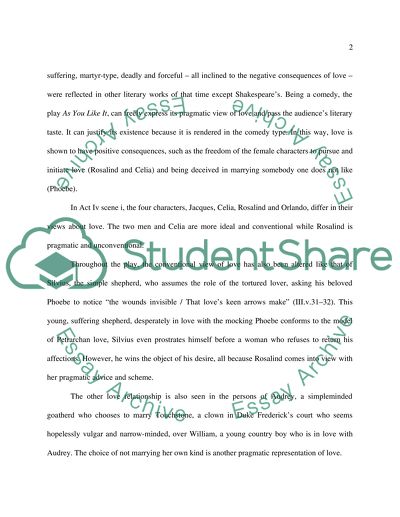Cite this document
(“Love in Shakespeares 'As You Like It' Book Report/Review”, n.d.)
Love in Shakespeares 'As You Like It' Book Report/Review. Retrieved from https://studentshare.org/literature/1518057-love-in-shakespeares-as-you-like-it
Love in Shakespeares 'As You Like It' Book Report/Review. Retrieved from https://studentshare.org/literature/1518057-love-in-shakespeares-as-you-like-it
(Love in Shakespeares 'As You Like It' Book Report/Review)
Love in Shakespeares 'As You Like It' Book Report/Review. https://studentshare.org/literature/1518057-love-in-shakespeares-as-you-like-it.
Love in Shakespeares 'As You Like It' Book Report/Review. https://studentshare.org/literature/1518057-love-in-shakespeares-as-you-like-it.
“Love in Shakespeares 'As You Like It' Book Report/Review”, n.d. https://studentshare.org/literature/1518057-love-in-shakespeares-as-you-like-it.


